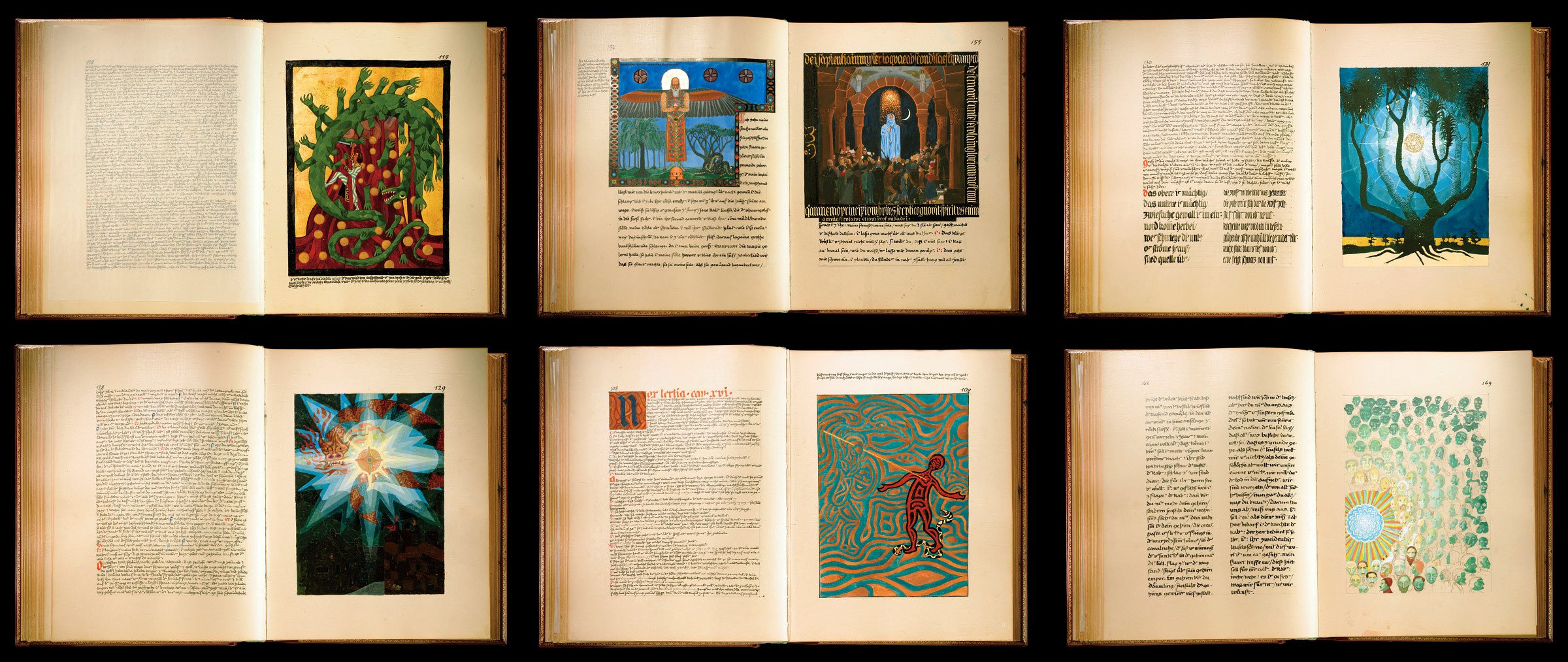Carl Jung’s books
A couple of images of the Red Book with art made by Carl Jung
Carl Jung was a Swiss psychiatrist and psychoanalyst who founded analytical psychology. He is best known for his theories of the collective unconscious, archetypes, and the psychological types. Jung wrote extensively throughout his career, and his works continue to be influential in the field of psychology.
Here are some of Carl Jung's most important books:
"The Red Book": This is a personal journal that Jung kept for over 16 years, which was only published after his death. It contains his innermost thoughts, dreams, and visions.
"Psychological Types": In this book, Jung introduces the concept of psychological types, including the famous distinction between extraversion and introversion.
"Man and His Symbols": This book was published just before Jung's death, and it provides a comprehensive introduction to his theories, as well as explanations of archetypes and the collective unconscious.
"Memories, Dreams, Reflections": This is an autobiography of Jung's life, which was written in collaboration with Aniela Jaffe. It provides a fascinating look into Jung's personal and professional development.
"The Archetypes and the Collective Unconscious": In this book, Jung explores the concept of the collective unconscious and archetypes, which he believed were universal symbols and patterns that exist within the human psyche.
"Aion: Researches into the Phenomenology of the Self": This book explores the concept of the Self, which Jung believed was the center of the psyche and the goal of psychological development.
"Symbols of Transformation": This book explores the process of psychological transformation, or individuation, which Jung believed was the ultimate goal of human development.
"The Practice of Psychotherapy": In this book, Jung provides a practical guide to his approach to psychotherapy, including the use of dream analysis and active imagination.
"The Undiscovered Self": This book explores the concept of the shadow, which Jung believed was the dark, unconscious aspect of the psyche that is often repressed and denied.
These are just a few of Carl Jung's most significant works, but he wrote many other books and articles throughout his career.

